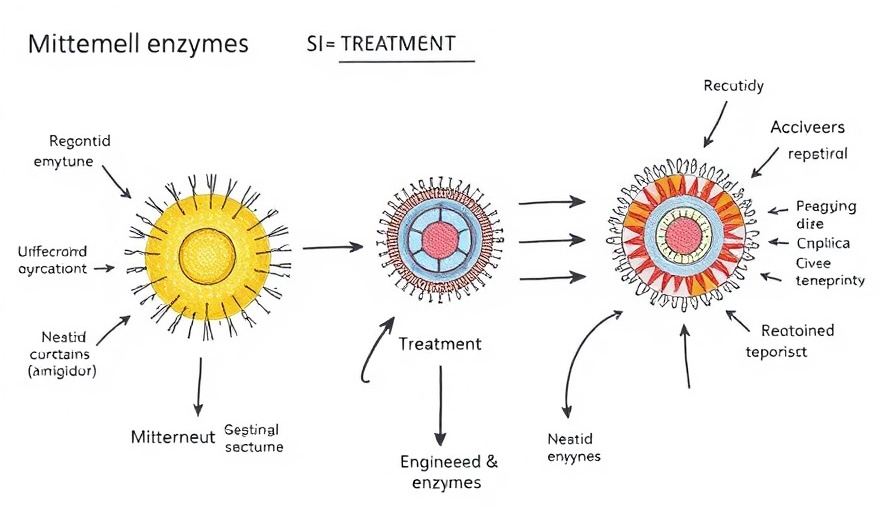
Understanding Mitochondrial Diseases: A Need for Solutions
Mitochondrial diseases are rare but devastating, affecting approximately 1 in 5,000 people globally. These diseases arise from mutations in mitochondrial DNA (mtDNA), leading to symptoms like muscle weakness and severe neurological issues. The common m.3243A>G mutation specifically causes MELAS syndrome, linking to lactic acidosis and even diabetes. This makes pursuing effective treatments not only critical but urgent for affected individuals and their families.
The Challenge of Heteroplasmy
One of the significant hurdles in treating mitochondrial diseases is heteroplasmy—the presence of both normal and mutant mtDNA in the same cell. This mixed genetic makeup complicates therapy development, as different tissues can have varying ratios of normal to mutated mtDNA. This variability means that treatments effective in one area may not work in another, creating a tragic lottery for patients requiring consistent and reliable outcomes.
Innovative Solutions on the Horizon
In response to these challenges, researchers from Fujita Health University led by Naoki Yahata have engineered enzymes known as mpTALENs, which can precisely control the mtDNA mutation levels in cells. These specialized proteins are designed to target and modify the specific sequences of mutant mtDNA, providing an invaluable tool in the fight against mitochondrial diseases.
The Role of Engineered Enzymes
These newly developed enzymes allow for the selective increase or decrease of the proportion of mutant mtDNA in cultured cells. By adjusting these ratios, the researchers can create models that mimic various mutation loads seen in actual patients, thereby enhancing our understanding of how these mutations lead to disease symptoms. This fundamental shift in research capabilities could lead to breakthroughs in therapeutic strategies for conditions like MELAS.
Future Implications for Health and Biotech
The successful application of mpTALENs represents a paradigm shift in biotech and biomedical research. As understanding of mitochondrial diseases grows, so too does the potential for novel treatment strategies that could dramatically change the quality of life for thousands of patients worldwide. The research published in Molecular Therapy Nucleic Acids stands at the cutting edge of health science, potentially paving the way for targeted therapies that could inhibit or reverse the effects of these debilitating diseases.
This groundbreaking approach could transform not just mitochondrial disease treatment but also inspire innovations in related fields, such as genetic disorders and other biomedical applications. The scalable nature of these engineered enzymes indicates a future where precision medicine is not just a dream but an accessible reality.
 Add Row
Add Row  Add
Add 




Write A Comment